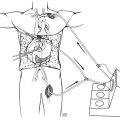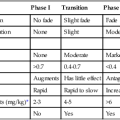Have you ever found yourself wondering about the arsenal available to combat hepatocellular carcinoma (HCC), a leading cause of cancer-related deaths worldwide? With advancements in medical science, the array of treatment options has broadened, offering new hope to those affected. This article aims to demystify the treatments available for HCC, translating complex medical terms into language that’s accessible to all. As we delve into the treatment landscape, we aim to empower patients and healthcare providers with knowledge, enabling well-informed decisions that pave the way for optimal outcomes.
Understanding HCC and Its Impact
Hepatocellular carcinoma (HCC) is a global health challenge that affects countless lives each year. Characterized by its aggressive behavior and the complexity surrounding its treatment, HCC demands timely recognition and a deep understanding of its potential impact. Early detection plays a crucial role in managing this condition effectively, as it opens the door to a wider range of treatment possibilities and significantly improves the chances of a positive outcome. Knowledge of HCC’s nature and effects is the first step toward fighting back against this formidable disease.
Surgical Options for Early-Stage HCC
In the battle against early-stage HCC, surgery stands out as a beacon of hope, offering the possibility of a cure. The surgical landscape is dominated by two primary approaches: resection and liver transplantation. Resection involves the surgical removal of the tumor along with a margin of healthy tissue, aiming to eradicate cancer cells from the body. Liver transplantation offers a ray of hope for those whose livers are significantly damaged by cirrhosis, replacing the diseased organ with a healthy one. These surgical options are pivotal in the quest for a future free from the clutches of HCC.
Radiofrequency Ablation (RFA)
Radiofrequency ablation represents a leap forward in minimally invasive cancer treatments, offering a lifeline to patients with smaller tumors. By inserting a needle electrode directly into the tumor and applying electrical currents, RFA heats and destroys cancer cells with precision. Its minimally invasive nature means that patients can often enjoy quicker recovery times compared to traditional surgery, making RFA a favored option for those eligible for this treatment.
Transarterial Chemoembolization (TACE)
TACE stands as a testament to the ingenuity of targeted cancer therapy. It delivers chemotherapy directly to the liver tumor while simultaneously obstructing its blood supply. This innovative approach ensures that high doses of cancer-fighting drugs reach the tumor and deprive it of the nutrients and oxygen needed for growth. Ideal for patients with intermediate-stage HCC, TACE exemplifies the strategic targeting of cancer cells while sparing healthy tissue.
Targeted Therapy and Immunotherapy
The advent of targeted therapy and immunotherapy has revolutionized HCC treatment, marking a new era in the fight against cancer. These cutting-edge treatments hone in on the cancer’s specific genetic characteristics or harness the power of the body’s immune system to combat the disease. By blocking the pathways cancer cells use for growth or enhancing the immune system’s ability to detect and destroy these cells, these therapies offer a glimmer of hope for a more effective and personalized approach to cancer treatment.
Palliative Care: Enhancing Quality of Life
In cases of advanced HCC, where the focus shifts from curative treatment to comfort, palliative care becomes an indispensable part of the treatment plan. This approach aims to alleviate the symptoms and stress associated with the disease, enhancing the quality of life for both patients and their families. Through pain management, emotional support, and symptom relief, palliative care provides a blanket of comfort during challenging times, underscoring the importance of compassion in cancer care.
Emerging Treatments and Research
As the fight against HCC continues, the research frontier constantly expands, bringing new treatments and hope to the forefront. Clinical trials exploring novel drugs, gene therapies, and innovative combination treatments promise to redefine the landscape of HCC therapy. Staying abreast of these developments allows patients access to the latest advances in treatment, opening doors to potentially life-extending options that were previously unimaginable.
Navigating the complex world of hepatocellular carcinoma treatment requires collaboration between patients and healthcare professionals. With a broad spectrum of treatments ranging from surgical interventions to the latest targeted therapies and immunotherapy, there is renewed hope for those facing this challenging disease. Understanding these options lays the foundation for a treatment plan that not only targets cancer effectively but also aligns with the patient’s unique needs and circumstances, offering the best possible pathway to managing and overcoming HCC.




